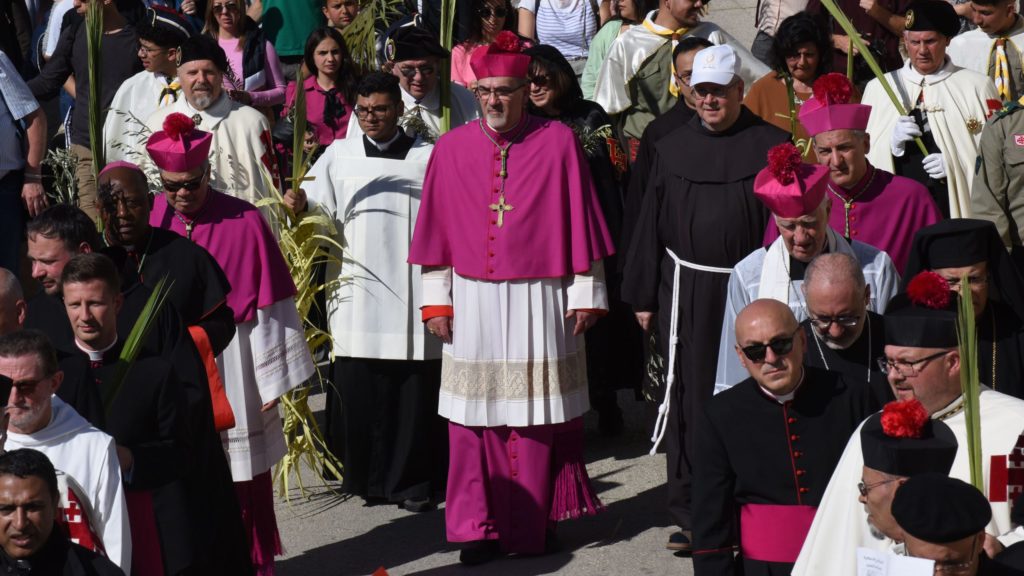Just as early Christians were sustained by the words of St. Peter describing Jesus' resurrection as offering a "new birth into a living hope," so too should the Christians of the Holy Land today be encouraged and empowered by this knowledge as they face tumultuous times, when their own faith continues to be tested, said the Patriarchs and Heads of Churches in their March 31 Easter message.
"As we have all seen in recent months, escalating violence has engulfed the Holy Land," they wrote. "Local Christians in particular have increasingly suffered adversities similar to the ones about which St. Peter wrote."
Following the November election of Israel's most politically and religiously right-wing government, Israel has experienced Israel Defense Forces army raids into the northern West Bank Palestinian cities; Palestinian terrorist attacks against Israelis and almost three months of growing Israeli protests against the new government's attempts to carry out a judicial overhaul.
Many Israelis believe it will break Israel's already fragile democracy. In addition, attacks against Christian sites also have increased.
The Patriarchs and Church leaders noted in their statement that over the past year some churches, funeral processions and other Christian places of public gathering have become targets of attacks, and some holy sites and cemeteries have been desecrated.
This includes vandalizing a statue of Jesus at the Franciscan Church of Flagellation in the Old City Feb. 2, as well as what was called "a violent incident" at the Tomb of Mary church in annexed east Jerusalem March 19.
Church leaders also noted that ancient liturgies, such as the Palm Sunday procession and the Orthodox Holy Fire Ceremony, have been closed off to pilgrims. The Holy Fire ceremony takes place on Orthodox Holy Saturday when thousands of local Orthodox Christians and Orthodox pilgrims celebrate the proposed miracle of fire at the Tomb of Jesus in the Church of the Holy Sepulcher and which Israeli police see as a fire hazard because there is only one entrance into the church.
"This is in spite of our agreements to cooperate with the governing authorities, and to accommodate any reasonable requests that they might present," the Patriarchs and Church leaders said in their statement.
"While we will persevere in these good-faith efforts, we ask the overseeing officials to work cooperatively and collaboratively with us, even as we call upon international community and local residents of goodwill to advocate on our behalf, in order to help secure the safety, access, and religious freedom of the resident Christian community and the millions of Christian pilgrims annually visiting the Holy Land -- as well as the maintenance of the religious Status Quo."
Though they welcomed this support, their final hope was not placed in the hands of any human source, they said.
"We place our ultimate hope only in God. For through Christ's resurrection, we have the blessed assurance of the Almighty's gracious providence through the Holy Spirit, a source of divine power that is able to sustain us today, just as it sustained Jerusalem's first Christians those many centuries ago," they said in the statement.
"And so it is in the hope offered in Christ's resurrection that we exchange with our fellow believers around the world that ancient Christian greeting that continues to resound so powerfully today: 'Christ is Risen!'"

